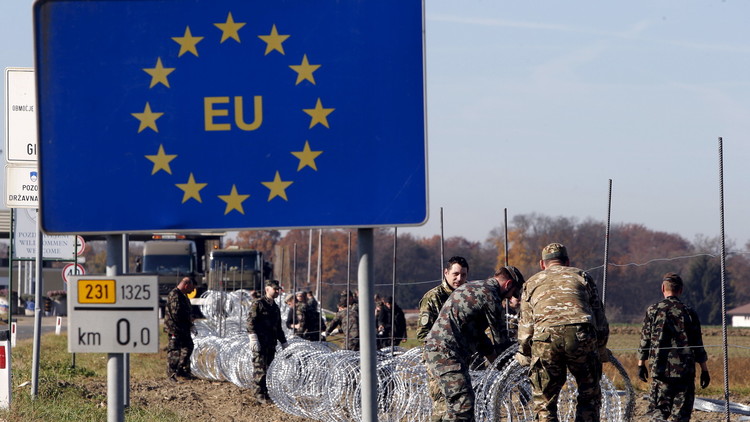By Aya Ezz
EU has intensified talks sought to establish a unified army to counter ‘lone-wolf’ terrorism’—an extraordinary threat unleashed by IS. About 25 EU states led by Germany and France signed on Nov. 13 last year a joint notification of Permanent Structured Cooperation (PESCO).
The new defence pact allows member states to jointly develop military capabilities, enhance their respective armed forces and upgrade their anti-terror military actions. It was Czech Republic and Hungary, which first made the initiative on January 5 last year.
Hungarian Prime Minister Victor Urban urged his counterparts that top priority should be given to security. He also called upon the European governments to cooperate and build ‘a unified European army’. In the meantime, Czech Prime Minister Boshoslav Bosotka stressed that a powerful European army would guarantee better defence strategy across the Continent.
The proposal was described by Moscow as ‘a very good step’. However, Russian military experts were quoted by Argumenty I Fakty newspaper as saying that such a significant strategy for European security and safety would claim a huge outlay.
According to The Times newspaper, the proposal of a unified army had overwhelmed European military experts after Britain changed its mind about its EU membership.
Nonetheless, EU’s unprecedented step was viewed in a different light by Alexei Mukhin, one of Russia’s a prominent political analysts. He believed that European countries were seeking a unified army only to counterbalance the US influence through NATO.
Elaborating Mukhin said that ex-US President Barack Obama had sought to charge EU members more money for the presence of NATO on the alleged effete Continent. “Ex-President Obama had asked for more money to allegedly improve security and safety across Europe,” Mukhin said.
Mukhin noted that the Europeans had realized that it would be much better for their security if they shifted their contribution from the alleged ‘alien’ NATO to a native army.
Mukhin was also quoted as saying that the European governments were deeply concerned that the US campaign for NATO reinforcements in Europe would inevitably increase the already expensive bill the Europeans had to pay to maintain NATO on their territories. However, the Russian analyst indicated that the Europeans would have to allocate bigger budget and spent longer time before their proposed unified army could be tasked with its responsibilities. “The idea of a unified army weighed heavily on the Europeans after realizing that Washington was bidding to have stronger presence in the old Continent at their expesne,” Mukhin said. Nonetheless, he continued, the Europeans should be aware that the budget to form a unified army would be enormous and it would take them from 5 to 10 years to commission the native army in place of NATO.
On the other hand, Vladimir Gubaraov, first Vice President of the European Parliament Committee on Foreign Affairs, indicated that the German and the French armies would constitute the backbone of the proposed Europe’s unified army. However, he showed much suspicions that the idea would come to the daylight one day. He based his suspicions on the huge outlay. “European countries will not pay this money,” he said.
EU’s senior officials conceded that Europeans had been panicked by ISIS’s growing threat in Europe. “Deeply concerned over the threat of ISIS across the Continent, EU countries suggested that a unified army would help plug up the security holes,” he said.








































admin in: How the Muslim Brotherhood betrayed Saudi Arabia?
Great article with insight ...
https://www.viagrapascherfr.com/achat-sildenafil-pfizer-tarif/ in: Cross-region cooperation between anti-terrorism agencies needed
Hello there, just became aware of your blog through Google, and found ...